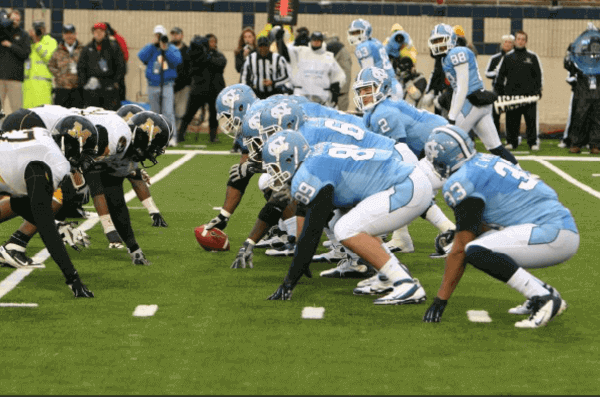
Colleges do not have to actively monitor the social media accounts of their athletes for NCAA rules violations, according to a ruling released Monday.
Last summer the NCAA said it was investigating nine rules infractions by the University of North Carolina football program, including not being vigilant enough in monitoring social media for evidence of rules infractions. As ESPN columnist Sarah Spain wrote at the time, the NCAA was setting itself up to open a potential can of worms.
“Whoever was in charge of watching the Twitter and Facebook (and MySpace? And Reddit? And Flickr? And LinkedIn?) profiles of Tar Heel football players missed out on clues that pointed to benefit violations and more,” Spain wrote. “Overzealous internet ‘detectives’ may end up violating privacy rights in order to get the information they’re seeking, or monitors may make assumptions about athlete-agent or athlete-coach relationships based on Facebook friendships or Twitter postings.”
Indeed, some colleges have already admitted to setting up phony Facebook and Twitter accounts, hoping to befriend student athletes and get behind privacy settings to make sure they were not violating NCAA rules, including inappropriate contact with agents. As we reported yesterday, there is anecdotal evidence that other schools were asking athletes for access to there social media accounts.
Monday’s NCAA report takes the pressure off schools to be sneaky. The NCAA said it “declines to impose a blanket duty on institutions to monitor social networking sites.Consistent with the duty to monitor other information outside the campus setting (beyond on-campus activities such as countable athletically related activities, financial aid, satisfactory progress, etc.), such sites should be part of the monitoring effort if the institution becomes aware of an issue that might be resolved in some part by reviewing information on a site.”
The key word there, according to Bradley Shear, a lawyer who blogs about social media legal issues, is “if.” It means that schools have the same obligation to monitor online activities as they do to monitor offline activities, and, Shear added, saved the NCAA from potential lawsuits in the future.
“The NCAA’s decision today has clearly stated that schools do not need to engage costly social media monitoring services that require students to provide access to their password protected electronic content,” Shear wrote. “The companies that push these services are selling snake oil that is essentially a legal liability time bomb and they are preying off a school’s fear. This has lead to some schools violating the constitutional rights of its students.”
UNC changed its policy ahead of the NCAA ruling, alerting all student athletes “that at least one coach or administrator has been assigned to monitor sites regularly, evaluating postings that identify possible improper extra benefits or agent-related activities.” Athletes violating social media policies face a range of penalties, including loss of scholarship and dismissal from the team.
“As all these cases transpire, there’s new findings and new things you have to try to prevent in the future,” UNC athletics director Bubba Cunningham said in a teleconference with reporters.
Photo courtesy of University of North Carolina Athletic Department.
















